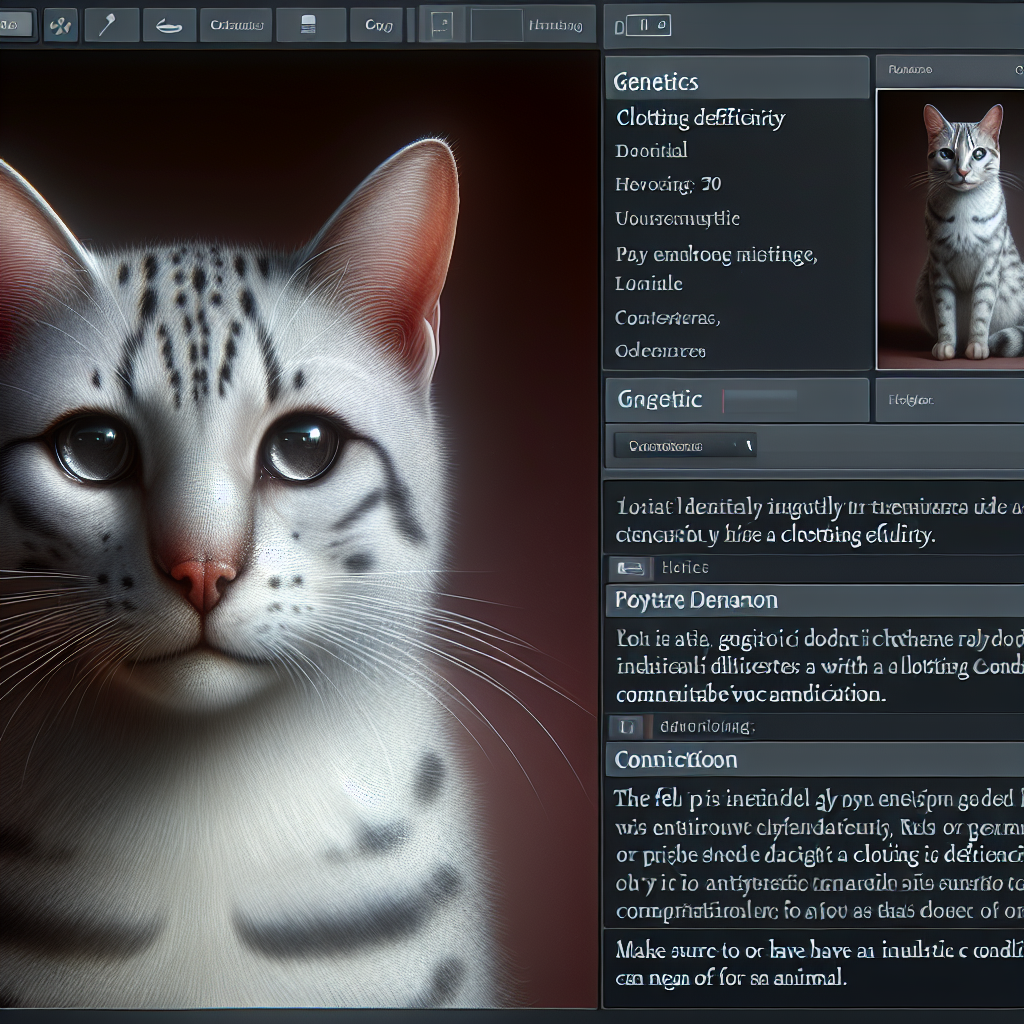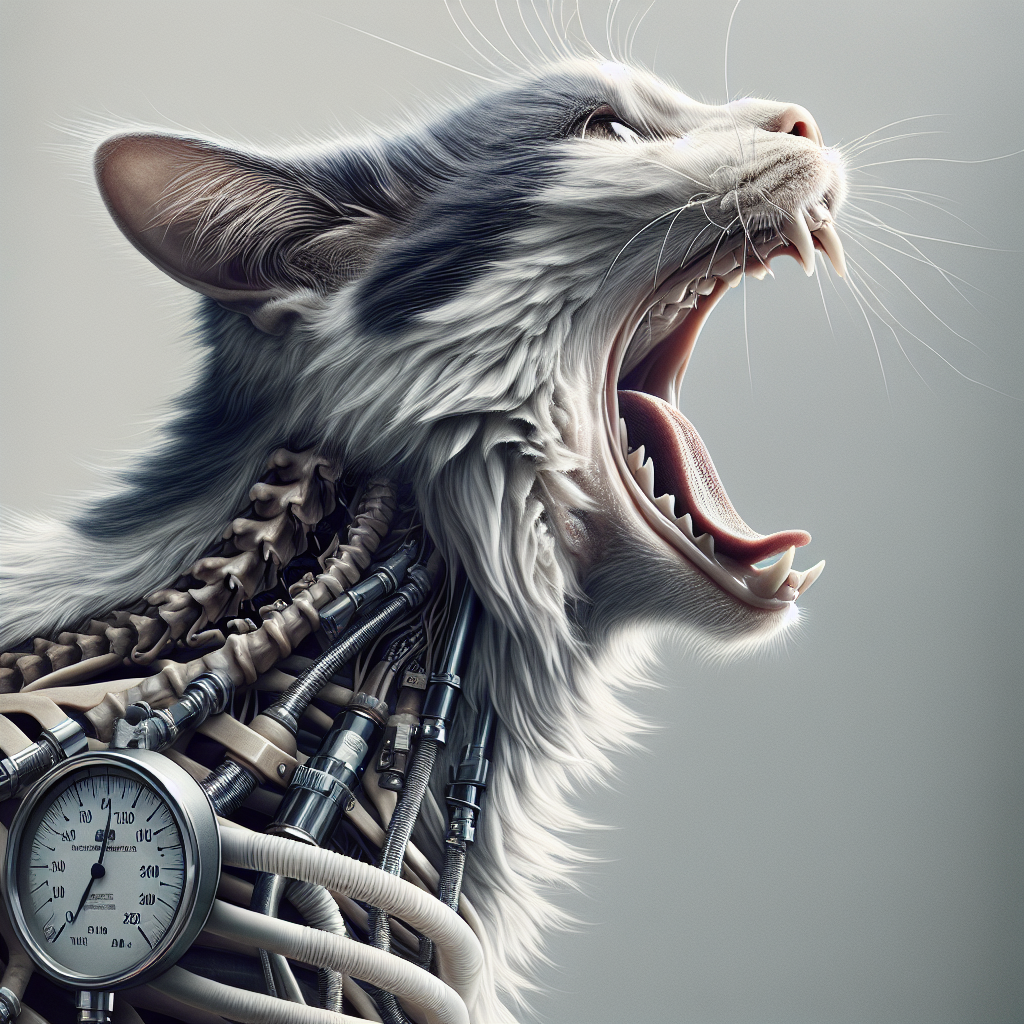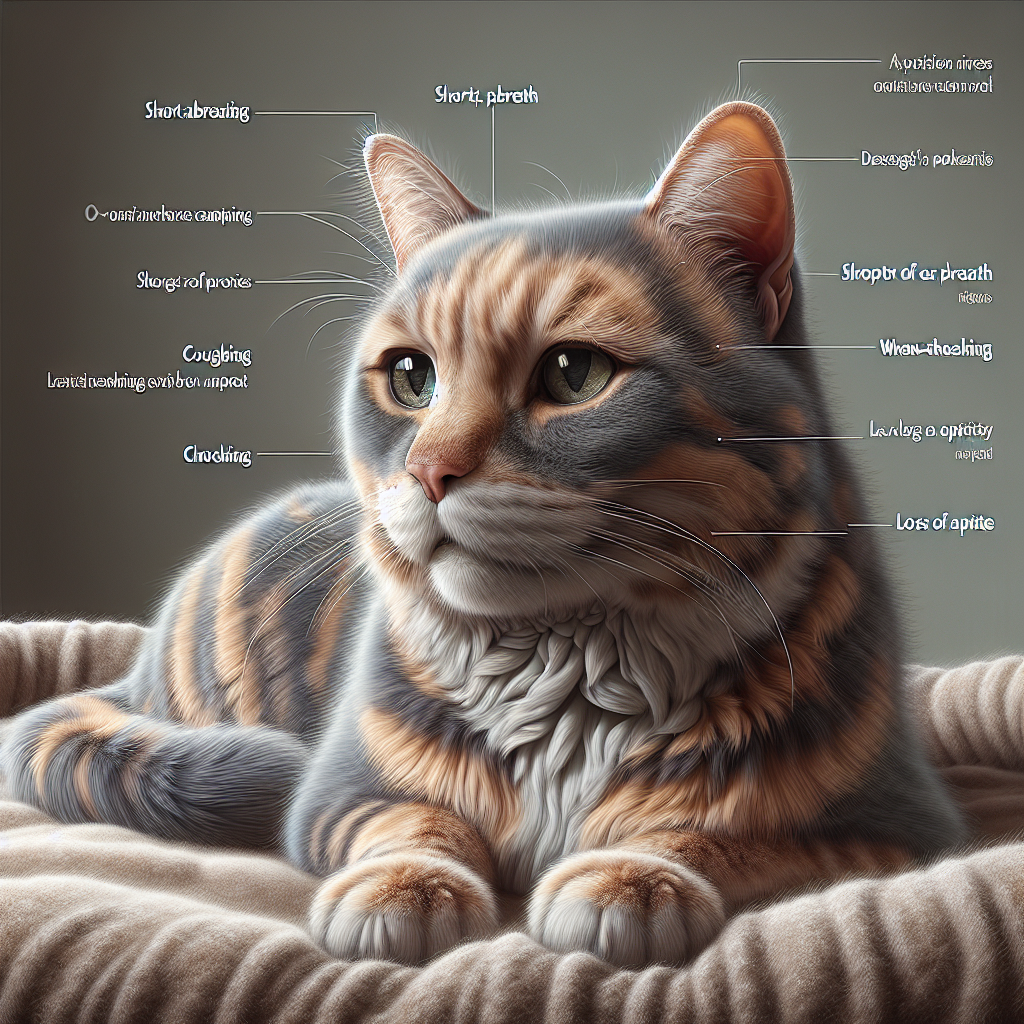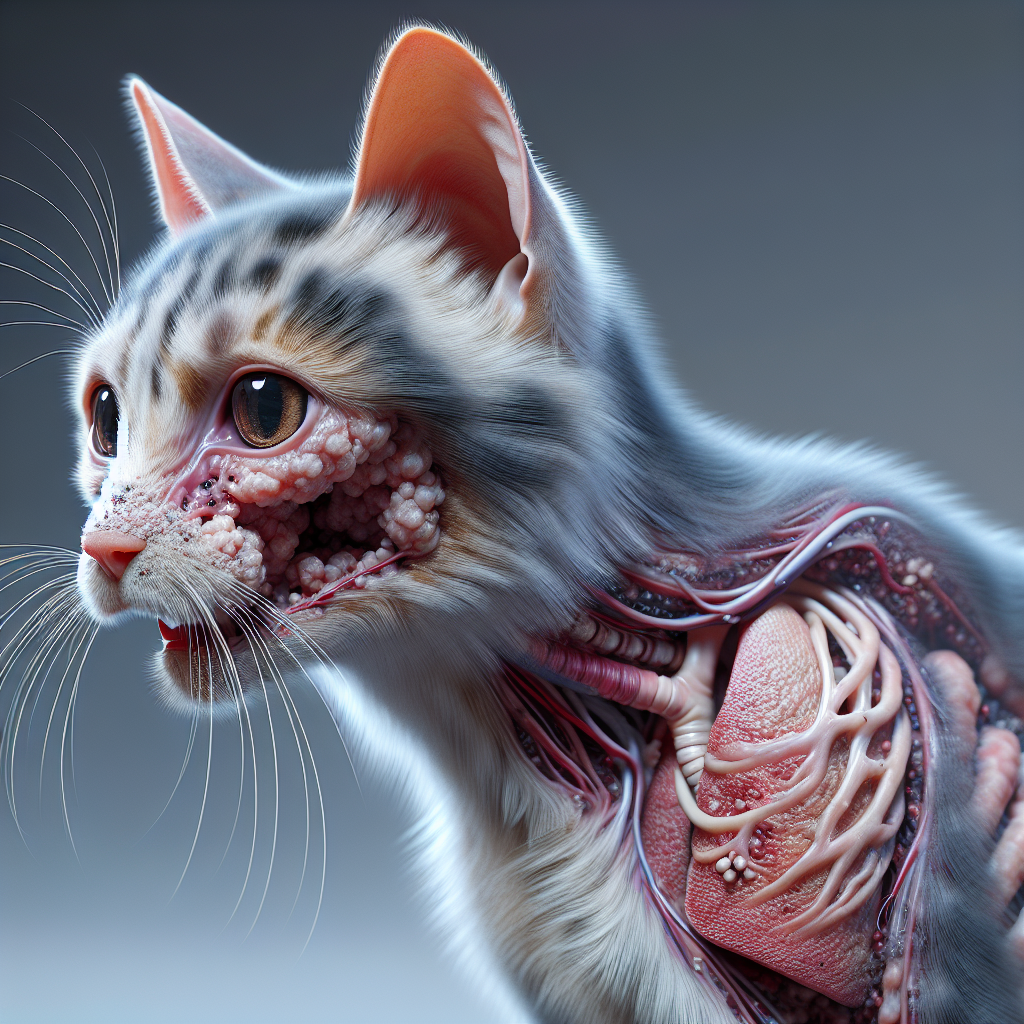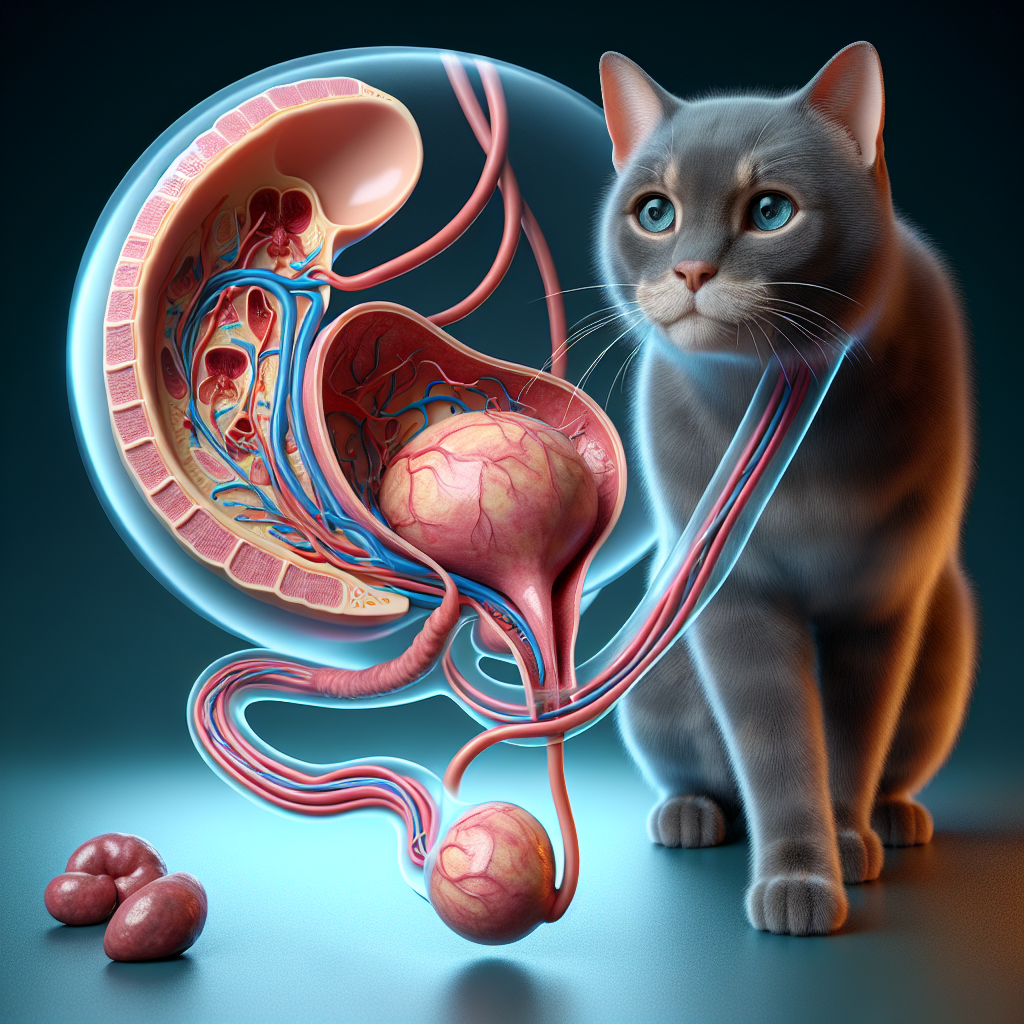Understanding Cat Wheezing and Coughing
Cat wheezing and coughing can be concerning for pet owners. It’s important to recognize the signs of respiratory distress in cats and understand the common causes of cat wheezing.
Signs of Respiratory Distress in Cats
Wheezing and coughing in cats may indicate respiratory distress. Wheezing is a high-pitched whistling sound that occurs when the cat breathes, suggesting that the cat may not be getting enough oxygen to their lungs. This can be a sign of feline asthma, a condition where the air passageways are constricted or inflamed, leading to wheezing in the lower airways. Other signs of respiratory distress in cats may include:
- Rapid or labored breathing
- Coughing
- Panting
- Open-mouth breathing
- Blue-tinged gums or tongue
If you notice any of these signs, it’s important to seek veterinary care promptly to determine the underlying cause and provide appropriate treatment.
Common Causes of Cat Wheezing
Cat wheezing can have various causes, including:
-
Feline Asthma: Asthma is a common condition in cats, characterized by inflammation and constriction of the airways. Wheezing can occur as a result of feline asthma, and prolonged wheezing may indicate an asthma attack (Trudell Animal Health).
-
Hairballs: Wheezing can also be a result of hairballs. The wheezing sound occurs as the cat coughs out the hairball from the esophagus. However, if wheezing persists without the production of a hairball, it could signal a more serious respiratory problem like asthma (Trudell Animal Health).
-
Allergies: Cats can experience allergies similar to humans. Common allergens such as pollen, mold, or cigarette smoke can lead to airway irritation and wheezing. Observing the environment during a wheezing episode can help identify potential allergens for further discussion with a veterinarian.
Identifying the underlying cause of cat wheezing is crucial for appropriate treatment. If your cat is experiencing wheezing or coughing episodes, it’s essential to consult with a veterinarian to determine the cause and develop a suitable treatment plan. Early intervention can help alleviate respiratory distress and improve your cat’s overall quality of life.
Identifying Health Issues in Cats
When it comes to the health of our feline companions, it is important to be vigilant in identifying any signs of respiratory distress. Wheezing and coughing in cats can indicate underlying health issues that require attention. In this section, we will discuss serious symptoms to watch for and recurrent coughing in cats.
Serious Symptoms to Watch For
It is important to be aware of serious symptoms that may accompany wheezing and coughing in cats. If you notice any of the following signs, immediate veterinary attention is necessary:
- Blue or grey tongue and gums: If a cat’s tongue and gums turn blue or grey during coughing, it signifies a lack of oxygen and requires immediate veterinary attention (Trudell Animal Health).
- Labored breathing: If your cat is struggling to breathe, has rapid or shallow breaths, or shows signs of breathing difficulties, it is essential to seek veterinary care promptly. This could be a sign of a serious respiratory issue.
- Loss of appetite or lethargy: If your cat experiences a loss of appetite, becomes lethargic, or shows a significant decrease in activity levels, it could indicate an underlying health problem that requires attention.
Remember, the presence of these serious symptoms alongside wheezing and coughing should not be taken lightly. Seeking veterinary care is crucial to ensure the well-being of your cat.
Recurrent Coughing in Cats
Recurrent coughing in cats can be a sign of chronic conditions that require regular management to control symptoms. If your cat experiences frequent coughing episodes, it is important to consult with a veterinarian for proper diagnosis and treatment (Trudell Animal Health). Some potential causes of recurrent coughing in cats include:
- Allergies: Cats can develop allergies to various substances, including pollen, dust mites, or certain foods. These allergies can manifest as respiratory symptoms, including coughing and wheezing.
- Asthma: Asthma is a chronic inflammatory disease of the airways that can cause coughing, wheezing, and difficulty breathing. It is important to work closely with a veterinarian to manage and control asthma symptoms in cats (cat bronchitis symptoms).
- Respiratory infections: Bacterial or viral infections such as feline upper respiratory infections can lead to coughing in cats. These infections often require appropriate treatment to resolve the symptoms.
If your cat experiences recurrent coughing, it is essential to consult with a veterinarian to determine the underlying cause and develop an appropriate treatment plan. Proper diagnosis and management are crucial for maintaining your cat’s respiratory health and overall well-being.
By being aware of serious symptoms and recurrent coughing in cats, you can take the necessary steps to ensure the health and comfort of your feline companion. Regular veterinary care, prompt attention to symptoms, and proper treatment are key to addressing any health issues and providing the best possible care for your cat’s respiratory health (chronic bronchitis in cats).
Diagnostic Process for Cat Coughs
When a cat is experiencing coughing episodes, it’s important to determine the underlying cause in order to provide appropriate treatment. The diagnostic process for cat coughs typically involves a veterinary examination and diagnostic tests to identify respiratory issues.
Veterinary Examination for Coughing Cats
To diagnose the cause of cat coughing, veterinarians begin by conducting a thorough examination. They will gather a complete health history, including any recent changes in the cat’s environment or exposure to potential irritants. During the physical examination, the veterinarian will listen to the cat’s lungs and observe their breathing pattern.
Cats may exhibit different types of coughs, such as wet or dry coughs. A wet cough is often associated with conditions like infections, while dry coughs can be linked to issues like asthma, inhaled foreign bodies, or even cancer. It’s important to note that coughing in cats is sometimes confused with retching or gagging, including “coughing up hairballs”.
Diagnostic Tests for Respiratory Issues
In addition to the veterinary examination, diagnostic tests may be necessary to pinpoint the cause of the cat’s cough. These tests can help to rule out certain conditions and provide more specific information.
Some common diagnostic tests for respiratory issues in cats include:
-
Blood tests: Blood work may be conducted to check for signs of infection or inflammation. It can also help evaluate the overall health of the cat.
-
Heartworm antigen tests: Heartworm disease can cause respiratory symptoms in cats. Heartworm antigen tests can help determine if heartworms are present and contributing to the cough.
-
Radiography: X-rays of the chest can provide detailed images of the lungs and help identify abnormalities such as masses, pneumonia, or lung disease. Radiographs can be especially useful in ruling out certain conditions.
-
Other diagnostic tests: Depending on the suspected cause of the cough, additional tests such as bronchoscopy, tracheal wash, or cytology may be performed to obtain further information.
It’s important to seek veterinary attention if a cat’s cough persists for more than a few days, is severe, productive, recurrent, or if the cat appears sick or is losing weight (VCA Canada). Diagnostic tests play a crucial role in determining the cause of the cough, enabling veterinarians to develop an appropriate treatment plan.
Once the underlying cause of the cough has been identified, the veterinarian can recommend the most suitable treatment options to alleviate the cat’s symptoms and improve their respiratory health. These treatment options may include medications, such as decongestants or antibiotics, targeted supplements, anti-inflammatory drugs, or chemotherapy in certain cases.
Treatment Options for Cat Coughing
When it comes to treating cat coughing, the approach depends on the underlying cause of the respiratory problem. The treatment options can vary and should be recommended by a veterinarian after a thorough examination. Let’s explore two common treatment approaches for cat coughing: medications for cat respiratory problems and managing chronic respiratory conditions.
Medications for Cat Respiratory Problems
To alleviate cat coughing and other breathing difficulties, medications may be prescribed based on the diagnosis and the cat’s medical condition. The specific medications used can vary, but they may include:
-
Cough suppressants: These medications help reduce the frequency and intensity of coughing episodes, providing relief to the cat. They are particularly useful for managing coughing caused by irritation or inflammation of the airways.
-
Antibiotics: If the cause of the cough is determined to be an infection, such as bacterial bronchitis, antibiotics may be prescribed to treat the underlying infection. It is important to follow the veterinarian’s instructions and complete the full course of antibiotics.
-
Steroids: In cases where the cough is due to severe inflammation or an allergic reaction, steroids may be used to reduce inflammation and alleviate symptoms. Steroids can help open up the airways and improve breathing.
It is crucial to consult a veterinarian before administering any medications to your cat. The proper dosage and duration of treatment will depend on the cat’s specific condition and needs.
Managing Chronic Respiratory Conditions
In cases where the cat has been diagnosed with chronic respiratory conditions such as chronic bronchitis in cats, long-term management strategies may be necessary. These strategies often involve a combination of treatments and lifestyle modifications to help improve the cat’s quality of life. Some approaches may include:
-
Targeted supplements: Certain supplements can support mucous membrane repair and alleviate inflammation in the airways. These supplements, such as omega-3 fatty acids, can be beneficial in managing chronic respiratory conditions.
-
Anti-inflammatory drugs: Cats with allergies or chronic inflammation may benefit from anti-inflammatory medications. These drugs help reduce inflammation in the airways, providing relief from coughing and other respiratory symptoms.
-
Chemotherapy: In cases where the cough is caused by certain types of cancer, chemotherapy may be recommended. Chemotherapy can help manage the underlying cancer and alleviate associated respiratory symptoms.
In addition to medication-based treatments, it is important to create an environment that supports cat respiratory wellness. This includes minimizing exposure to environmental triggers such as smoke, dust, and strong chemical odors. Regular veterinary check-ups and ongoing communication with your veterinarian are essential for monitoring and managing chronic respiratory conditions in cats.
By following the recommended treatment options and consulting with a veterinarian, you can help your cat find relief from coughing and improve their respiratory health. Remember to always prioritize your cat’s well-being and seek timely treatment to address any concerns regarding their respiratory health.
Preventive Measures for Cat Respiratory Health
Taking preventive measures is crucial for maintaining the respiratory health of your cat. By identifying and addressing potential environmental triggers and supporting their overall well-being, you can help reduce the risk of respiratory issues. Here are some preventive measures to consider:
Environmental Triggers to Avoid
Environmental factors can play a significant role in triggering respiratory problems in cats. It’s important to identify and minimize exposure to potential allergens and irritants. Some common environmental triggers to be aware of include:
- Allergens: Cats, like humans, can be allergic to substances such as pollen, mold, dust mites, or certain foods. These allergens can lead to airway irritation and wheezing. Observing your cat’s environment during a wheezing episode can help identify potential allergens for consultation with a veterinarian.
- Smoke: Cigarette smoke can have a detrimental effect on a cat’s respiratory system. Avoid smoking around your cat and ensure their living environment is smoke-free.
- Stress: Stress can also contribute to wheezing in cats. Environmental stressors such as unfamiliar guests, loud noises, or sudden changes can trigger a stress response. Recognizing these stressors and providing a calming environment can help alleviate stress-related wheezing in cats (Trudell Animal Health).
By minimizing exposure to these environmental triggers, you can help reduce the likelihood of respiratory issues in your cat.
Supporting Cat Respiratory Wellness
In addition to avoiding environmental triggers, there are several ways to support the respiratory wellness of your cat:
- Regular Veterinary Check-ups: Schedule regular check-ups with your veterinarian to monitor your cat’s overall health, including their respiratory system. Regular examinations can help detect any underlying issues early on and ensure appropriate preventive measures are in place.
- Healthy Diet: Provide your cat with a balanced and nutritious diet to support their immune system and overall well-being. Consult with your veterinarian to determine the best diet for your cat’s specific needs.
- Clean Living Environment: Keep your cat’s living area clean and free from dust, mold, and other potential irritants. Regularly clean bedding, vacuum carpets, and ensure good ventilation to maintain a healthy indoor environment.
- Proper Vaccinations: Ensure your cat is up to date on vaccinations to protect against common respiratory infections, such as feline viral rhinotracheitis. Vaccinations are an essential preventive measure to reduce the risk of respiratory diseases.
By implementing these preventive measures, you can help safeguard your cat’s respiratory health and provide them with a safe and comfortable living environment.
To learn more about respiratory issues in cats and how to identify and address them, refer to our previous sections on cat breathing difficulties, cat bronchitis symptoms, and chronic bronchitis in cats.
Seeking Veterinary Care for Cat Coughing
When a cat is experiencing coughing episodes, it is essential to seek veterinary care to ensure their well-being and identify any underlying health issues. Here are some important considerations regarding when to consult a veterinarian and the importance of timely treatment for cat coughing.
When to Consult a Veterinarian
While occasional coughing in cats may not always be a cause for concern, persistent or severe coughing should prompt a visit to the veterinarian. It’s important to remember that cats cough less frequently than other animals and may exhibit signs that are easily mistaken for retching or gagging, including “coughing up hairballs” (VCA Canada). If you notice any of the following signs, it is recommended to consult a veterinarian:
- Coughing that persists for more than a few days
- Severe or recurrent coughing episodes
- Productive cough (cough accompanied by the expulsion of mucus or other substances)
- Weight loss or the cat appearing sick
- Tongue and gums turning blue or grey when coughing, indicating a lack of oxygen (Trudell Animal Health)
Prompt veterinary attention is crucial to determine the cause of the cough and initiate appropriate treatment. Your veterinarian will perform a thorough examination and may recommend additional diagnostic tests to identify the underlying issue (VCA Canada). Remember, if you are ever unsure about your cat’s health, it is always better to err on the side of caution and seek professional advice.
Importance of Timely Treatment
Timely treatment is essential when it comes to cat coughing. If left untreated, coughing can be a symptom of a more serious underlying condition such as chronic bronchitis in cats. Delaying veterinary care may result in the progression of the underlying issue and potentially lead to further complications.
A veterinary professional will be able to accurately diagnose the cause of your cat’s cough and develop an appropriate treatment plan. This may include medication to alleviate respiratory problems, such as bronchodilators or anti-inflammatory drugs. In some cases, managing chronic respiratory conditions may require long-term treatment and close monitoring.
By seeking veterinary care promptly, you can help ensure the best possible outcome for your cat’s respiratory health. Remember, even if the cough seems minor or infrequent, a veterinarian can provide valuable insights and guidance to address any underlying issues and maintain your cat’s overall well-being.
To learn more about common causes of cat coughing and how to identify respiratory distress in cats, refer to the previous sections of this article: Common Causes of Cat Wheezing and Signs of Respiratory Distress in Cats.







